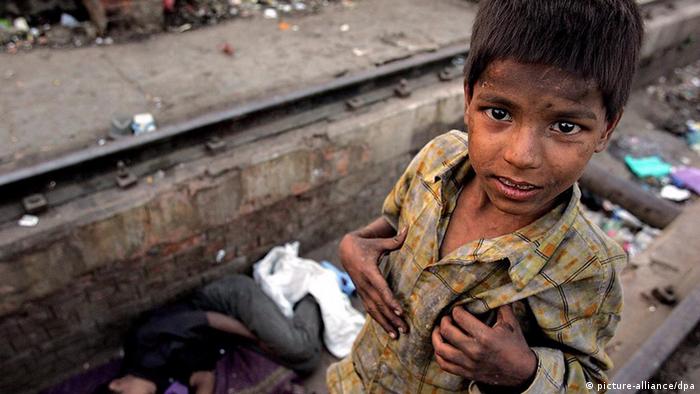Children suffer labor pain

It was a freezing cold December morning in India. I was wrapped up in my thick blanket. The alarm buzzed, coupled with my mother panicking about her early morning list of “to-dos”. After a late night shift at work I was reluctant to wake up. So I ignored both, but not completely. The sun rays streaming through the window helped me fight off my laziness. I now sat on the bed, blanket in place, a cup of steaming hot coffee in my hands, reading the morning newspaper and caught a glimpse of what was going on at my neighbour’s porch.
On their porch I saw a 10 year old girl wearing a torn pullover over a cotton frock, the sleeves pulled up till her elbow, bare legs and feet, dry lifeless hair tied with a rubber band and her hands soaked in a bucket of apparently very cold water.
She rinsed the cloth in the bucket, squeezed it and began mopping the floor. I could feel the cold almost biting through her fingers. On top of it all, her mistress stood next to her, shouting instructions. Through her expression it was clear she was scolding the girl.
What all I saw made me feel ashamed of myself. I promptly left my comfort zone to start off my day, but that image kept bothering me. As they say, when you start noticing something, you see that particular thing around you every time. And thus began my encounters with many children lost in a life of labor.
After a gloomy start of the day I headed for work. I stopped my car at a traffic signal. An eight year old boy came running and started wiping the wind screen of the car and knocked on the window asking for money. While trying to ignore the knock I heard another- this time there was an eleven boy year old boy, selling newspapers.
My car was already clean and I had a newspaper too, so what could I really use? I was moved by their plight but, honestly, facing it everyday had made me indifferent. Once I had offered to pay the cost of a newspaper without buying it from a young street vendor; he refused to accept it unless I took the newspaper too. He said, “I am not a beggar.”
Children forced into labor want neither alms nor sympathy, but prefer a pragmatic approach to address their problems and give them their rights. Later that day with my colleagues I went to a nearby tea-stall. We were served tea by a seven year old boy, everybody called him ‘Chhotu’ (in Hindi it means small). He had sleepy eyes, a tired face, was being scolded repeatedly by the stall owner, yet put up an attractive smile. He won my heart. I asked him about his background.
“We are seven brothers and sisters and we all work for extra income that our family needs. I am the youngest and have never been to school. My siblings work as domestic helps, construction laborers etc. I listen to songs to avoid crying when my master yells at me. And one day I want to attend a school,” he said and immediately ran humming a song to take another order.
I sat there realizing, in India, many children are not destined to have a healthy start and a happy end of the day. At times they are physically abused and are also asked to work beyond normal working hours. Going to school is a distant dream for them. Their situation worsens when they pick up the bad habits of the older people they work with, like smoking or drinking.
Employing children rather than adults, is economically very viable. They are available at very low cost, they come cheap, are considered to be more efficient at times and can never unite against their bosses. Every drop counts. So, I went to my neighbour and asked her to hire a new helper who is not a minor. She was sensitive enough to think about it and two weeks later I was really pleased to see that she had taken my advice!
However it takes more than that to change things as I soon found out. The 10 year old girl’s parents insisted that their daughter get a new job at another household as they needed the money. It is heart-rending to know that she and tens of thousands like her will continue to suffer.
Author: Tanushree Sharma Sandhu
Editor: Manasi Gopalakrishnan/Grahame Lucas






